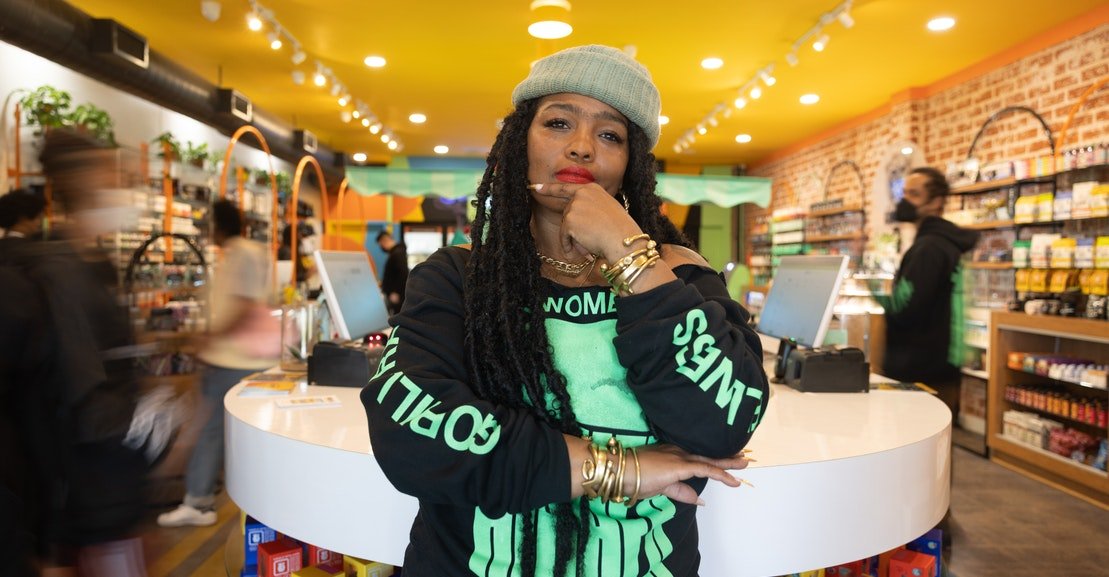Daughter of a Marxist tries to build wealth under Capitalism. It Fails drastically...
Why do children of Socialists go so far afield? At least this one starts to get the picture..Long, but interesting reading. Daughter goes to Capital and realizes Marx was right after trying to get into the Cannabis Biz.. Some key paragraphs below
"Keith comes from a long line of entrepreneurs whose attempts at generational wealth were thwarted by state-sanctioned exclusion and violence. Her great-great-grandparents owned land in Rappahannock County, Virginia, and operated a store. White neighbors did not want them there. “They were threatened to leave their land or be killed,” Keith’s mother, Shekinah Shakur, told me. “One of my relatives was killed in the doorway of the house.” The family fled to Pennsylvania, where Keith’s great-grandfather became a chauffeur.
Left out of what historian Ira Katznelson calls “white affirmative action”—the unions, social safety net, and federally subsidized mortgage loans created in the 1930s and ’40s—Keith’s grandparents still managed to establish a hotel and bar on the main drag of the only Lancaster, Pennsylvania, neighborhood where Black and Puerto Rican people were allowed to live. The business flourished until the 1960s, when the city used federal funding to cut down the neighborhood’s trees and destroy about 1,000 buildings, part of a nationwide push for “urban renewal”—a program James Baldwin referred to as “Negro removal,” because similar housing destruction in the name of slum clearance displaced tens of thousands of Black families across the country. Once again, Keith’s family left town, this time to Los Angeles.
As a kid, Keith loved to pore over the ledgers from her grandparents’ hotel, and in fourth grade she became obsessed with the stock market. Her parents were more interested in activism. Her father, Robert “Poppy” Keith, became a revolutionary at 10, when his mother brought him on a march to desegregate the local pool, and he saw his white classmates swimming where he wasn’t allowed. By 15, he was attending Black Power conferences. He co-founded a militant group in Lancaster called Black Rise, which protested police brutality, started a free heroin rehab clinic, and was committed to the same principles as the Panthers.
Keith’s mother, Shakur, used to walk past Keith’s father’s house and gaze up at him on the balcony, where he might be reading Malcolm X, Marcus Garvey, or George Padmore’s Pan-Africanism or Communism? Soon Shakur, too, became a Black radical, just as the civil rights momentum beget riots demanding an economic revolution, one that would take into account the intractable financial obstacles facing the Black underclass.
Keith hated her childhood. She wasn’t allowed to watch cartoons, and after her father took a trip to Africa, he began dreading his hair and decided the family was going vegetarian. Her interest in business was a form of rebellion, a way of attaching herself to her mother’s parents, who still ate bacon and had once been the kind of people Keith wanted to be: “the socialite family, well-to-do”—the people her father disapprovingly called the “Black elites.” When she left for college, her parents divorced, and she felt free to do as she pleased: studying agricultural managerial economics, and later starting a clothing company and a youth orchestra, before deciding to package and sell her mother’s green drink recipe.
As adult-use legal sales approached, Keith noticed Grant and other equity advocates shifting their attention from talking about helping the community to paid consulting and developing their own businesses. Keith spent around four months working at a social equity incubator run by a Black woman with political connections and experience in getting government contracts. Then one day, an older Black man walked out of a meeting with her boss, shaking his head. He turned to Keith and said, “That’s a damn sharecropper deal!”
Keith realized, with a start, that she agreed, and quit the job. Recalling her father’s lifelong wariness about “the Black elite,” she started to consider how class divisions and political access were blurring the line between self-interest and community advocacy, exposing weaknesses in the “true partnership” among Black people that the City Council president had promised. “The people who are helping to design it are designing it so that they can get more extra stuff,” Keith said.
Instead, for the first time in years, she began speaking with her father on the phone every day, to consult on political strategy. It was the elder Keith who suggested signs at one protest read WE SHOULD #OwnOurOwn COMMUNITIES, a reference to Stokely Carmichael’s 1966 observation that “Everybody owns our own neighborhoods except us.” Somehow, in her attempt to get rich, she started to appreciate why her parents had chosen a different path. She began to see her childhood in a more favorable light."


Fr, when thinking of being a parent, this is the conversation I dread to have most.